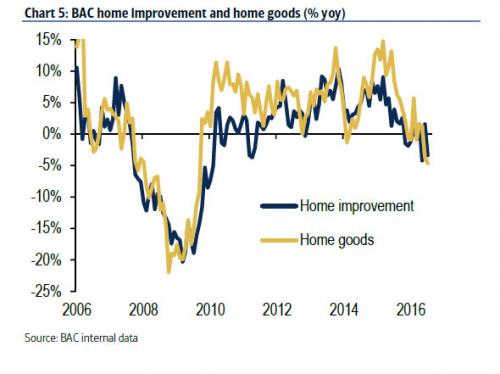
Disclaimer: As an Amazon Associate, “Furniture UK” earns from qualifying purchases.
In June, non-food items online sales grew by 9 percent in the United Kingdom against an increase of 17.6 percent in 2016 over the same period. Furniture sales online plummeted to position seventh in over 24 months. On the other hand, last month saw a change in-store sales as store sales registered a faster growth regarding furniture sales on the web. Sales in-store growth penetration stood at 27.7 percent, while in June 2015, the total online sales of non-food items across the UK stood at 20.6 percent.

According to a survey by BRC/KPMG, the sales growth of online non-food items must have been only 9 percent in June, which is lower than May’s, but online performance remained more robust, bearing in mind that June 2015 saw the best-recorded growth within that year. Only the Footwear category registered no increase in the June online sales performance.
Digital and in-store considerations
Online sales remain a significant area of sales increase across all retailers in the UK, but shoppers have stopped making channel considerations. They’re using both physical and digital stores to meet their shopping obligations. June figures emphasized once more that physical stores are important and the best destination for a unique retail experience, not just the sole and specific place for sales transactions alone.
Retail sales in the UK went up by 1.2% yearly- the lowest in seven years. Wet weather saw a dip in fashion sales as food sales did better than non-food items, mainly due to a boost from European sporting championships. As the Brexit ramifications were expected to hurt consumer confidence, most retailers hope that the coming holidays will see many people staying home, compelling many to shop more, particularly for non-food products such as furniture.
Takeaways from the BRC/KPMG survey
Essentially, the main takeaway from the survey is that Britain hasn’t closed shop since Brexit is not expected to have any effect on the pursuit of better products, shopping digitally and embracing new technologies. The pound may have fallen after the vote, but signs indicate the impact will not be felt long. There won’t be an increase in shop prices if there’re no other fluctuations in the pound, cost of commodities and retailers’ challenge to change the price due to the prevailing cutthroat competition. As a result, instant price shocks aren’t expected; if there are any, they might take time to be felt.
In July 2016, non-food products online sales went up in the UK as in-store sales indicated a slowdown. In June, online non-food sales seemed to have slowed to single digits. The BRC/KPMG survey monitor on retail sales shows that online sales of non-food items went up by 11.2 percent in July 2016, better than June’s 9 percent but lower than July 2015’s 14.7 percent, although within the expected yearly average of 11.1 percent.
At the same time, online sales have continued to outperform total sales. For the last three months ending July, non-food items sales online grew by 11.1 percent in the UK on a 12-months basis. Within the same three-month period, store sales fell even as the decline slowed. In July, growth was still very low, though.
Non-food items sales were 20.4 percent in the UK in July 2016, contrasting with July 2015’s 19.4 percent. Notably, the online penetration rate of non-food items was over 20 percent for seven months, although below the November 2015 22.4 percent penetration. The non-food online sales were a clear indicator of the total sales performance in July, as growth returned to the expected yearly average.
Brexit jitters
After the Brexit referendum in June, online sales performance had decreased as consumers were seemingly interested in knowing more about the vote than shopping, which changed in July as the Brexit situation was slowly being accepted across the divide and consumers returned to their spending ways.
At the same time, July saw a lot of varied promotional activities, which are consistent with this part of the year. The dip in consumer confidence expected doesn’t seem to be happening, and online-centred technology is making the modern consumer highly savvy in using the technology for shopping purposes and expecting reduced prices.
Retailers are expected to reply in kind as the market remains fiercely competitive. The Internet is still a significant shopping arena, and retailers are perceptibly working to ensure the experience in in-store and online channels remains consistent if the attraction of physical and virtual aisles will maintain its allure to all consumers. Of course, all eyes are on the next few months to see if the Brexit ramifications will eat into the increase in non-food product sales or if the curve will keep rising.




![Report on the British educational furniture manufacturers group [BEFMG]](https://thehome.co.uk/wp-content/uploads/2018/02/report-furniture-uk.jpg)



